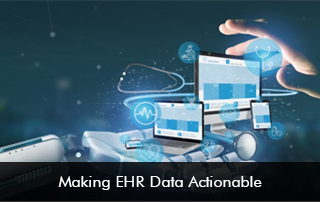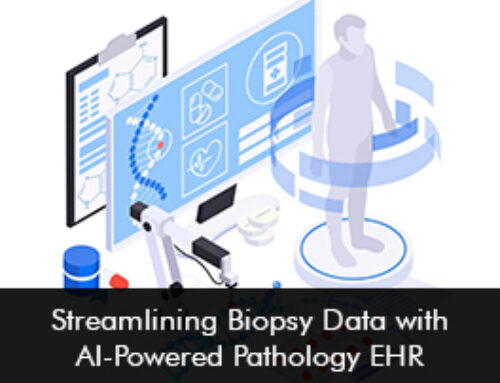The robust technology of Electronic Medical Records (EMR) Software plays a vital role to support care coordination and care delivery. However, there are interoperability challenges that make it difficult for EHR data to be used effectively to enhance the quality of patient care. New insights from the health It vendor executives reveal that EMR software optimization will be the optimum priority for healthcare organizations in 2023 as they aim to boost health outcome levels.
Using data analytics to unlock the potential of EHR data
American Orthopedics Partner (AOP), an orthopedic specialty practice is leveraging the power of data analytics to make its EMR software data more actionable. The insightful data can then be used by clinicians to make informed care decisions and enhance patient diagnosis, and treatment.
The significance of EMR system data unification
When unified electronic health records software is implemented by health systems, they have proven to enhance interoperability supporting the seamless exchange of patient data between involved stakeholders. To make the unified data actionable, providers need to overcome a couple of hurdles such as data collection and administrative burden on physicians.
Transitioning to digital formats and EHR software solutions has made it difficult to comprehend patient outcomes data between clinicians as there hasn’t been a standardized way to accumulate such data
The relevance of data to drive action
Before healthcare organizations unify and use their data, it is important to decide which data is most appropriate to the outcome that needs to be measured and enhanced.
The leaders at the orthopedic specialty practice have determined that it is vital to collect patient–reported outcomes (PROs) on each patient.
Once it has been decided which data to collect and the way it will be collected, healthcare organizations need to choose the tools that will be used to track and analyze the data. This will help to assess the health system’s performance across outcome measures.
The use of PatientIQ
AOP leveraged the PatientIQ tool, a cloud-based software platform, and a patient engagement solution that automated the collection of patient-reported outcomes with EHR-integrated workflows.
Once the patient demographic information has been collected by the front-desk staff members and entered into the EMR system, a protected connection is established with the PatientIQ software platform. This enables all future communications with patients to be automated – Patients are contacted before their first visit and on all follow-up appointments. This has increased the collection rate.
The PatientIQ platform has enabled AOP to collect and assimilate data promptly and has made it possible to finish quality research with recommendations to enable better care. By automating patient outcomes data collection through evidence-based workflows, it is possible to maximize clinical and operational efficiency.







